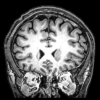This explains a lot about Finnish peoples drunken violence? ![]()
Impulsive alcohol-related risk-behavior and emotional dysregulation among individuals with a serotonin 2B receptor stop codon Impulsive alcohol-related risk-behavior and emotional dysregulation among individuals with a serotonin 2B receptor stop codon
OpenR Tikkanen1,2, J Tiihonen3,4,5, M R Rautiainen5, T Paunio1,5,6, L Bevilacqua7, R Panarsky8, D Goldman8 and M Virkkunen1,6
- 1Department of Psychiatry, University of Helsinki, Institute of Clinical Medicine, Helsinki, Finland
- 2Research and Development, Rinnekoti Foundation, Espoo, Finland
- 3Department of Clinical Neuroscience, Karolinska Institutet, Stockholm, Sweden
- 4Department of Forensic Psychiatry, University of Eastern Finland, Niuvaniemi Hospital, Kuopio, Finland
- 5National Institute for Health and Welfare, Helsinki, Finland
- 6Department of Psychiatry, Helsinki University Central Hospital, Helsinki, Finland
- 7Department of Psychiatry, New York University School of Medicine, New York, NY, USA
- 8Laboratory of Neurogenetics, National Institute on Alcohol Abuse and Alcoholism, Rockville, MD, USA
Correspondence: Dr R Tikkanen, Department of Psychiatry, University of Helsinki, Institute of Clinical Medicine, Välskärinkatu 12, P.O. Box 22, Helsinki 00260, Finland. E-mail: roope.tikkanen@helsinki.fi
Received 9 June 2015; Revised 18 September 2015; Accepted 19 September 2015
Top of page AbstractA relatively common stop codon (Q20*) was identified in the serotonin 2B receptor gene (HTR2B) in a Finnish founder population in 2010 and it was associated with impulsivity. Here we examine the phenotype of HTR2B Q20* carriers in a setting comprising 14 heterozygous HTR2B Q20* carriers and 156 healthy controls without the HTR2B Q20*. The tridimensional personality questionnaire, Brown–Goodwin lifetime aggression scale, the Michigan alcoholism screening test and lifetime drinking history were used to measure personality traits, impulsive and aggressive behavior, both while sober and under the influence of alcohol, and alcohol consumption. Regression analyses showed that among the HTR2B Q20* carriers, temperamental traits resembled a passive-dependent personality profile, and the presence of the HTR2B Q20* predicted impulsive and aggressive behaviors particularly under the influence of alcohol. Results present examples of how one gene may contribute to personality structure and behaviors in a founder population and how personality may translate into behavior.
http://www.nature.co...tp2015170a.html















































